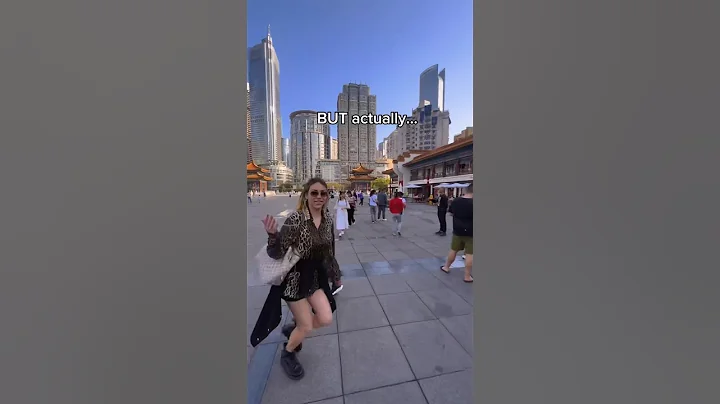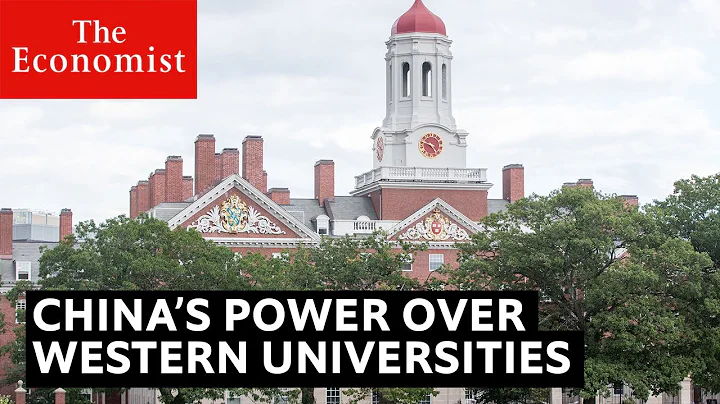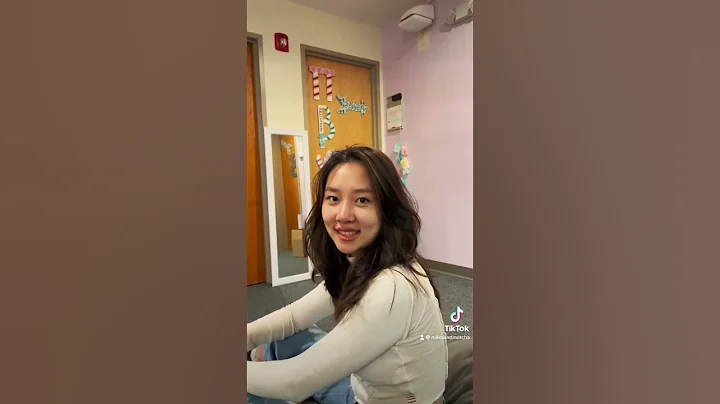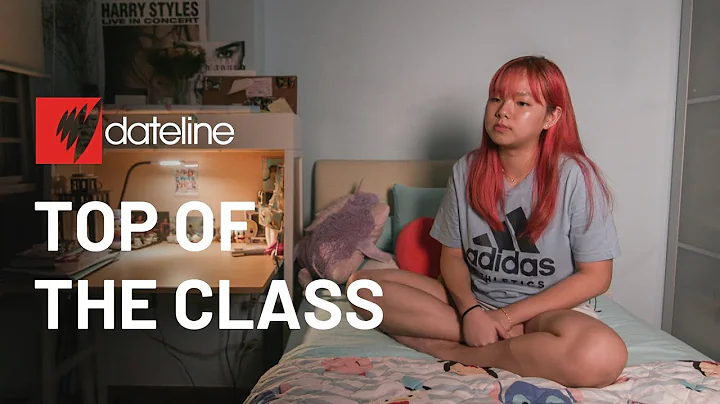The 2022 college entrance examination is around the corner,
Wuhan University, Huazhong University of Science and Technology and many other
universities have respectively released
full-time general undergraduate enrollment regulations.
Wuhan University 2022 Full-time Ordinary Undergraduate Admissions Regulations
Chapter 1
General Provisions
Article 1 According to the " Education Law of the People's Republic of China ", " Higher Education Law of the People's Republic of China " and other relevant laws and relevant regulations of the Ministry of Education, In order to better implement the requirements of the Ministry of Education to "administer admissions according to law", thoroughly implement the "Sunshine Project" for college admissions, standardize the school's full-time general undergraduate admissions work (hereinafter referred to as "admissions work"), and ensure the smooth progress of the admissions work, this is specially formulated This Charter.

Article 2
The main enrollment types covered by this charter are:
1. Students taking the entrance examination for general colleges and universities: including general college entrance examination students, recommended students, art majors, high-level art troupes, high-level sports teams, strong foundation plans, and special plans for targeted enrollment in poverty-stricken areas (hereinafter referred to as national special plans ;
2. Overseas Chinese, students from Hong Kong, Macao and Taiwan: including students admitted through the joint entrance examination of overseas Chinese, Hong Kong, Macao and Taiwan students admitted by ordinary colleges and universities, students recommended by Macao, students exempted from the exam in Hong Kong, students exempted from the exam in Taiwan, and those who have passed the Macao " four-school joint examination " results Admit students.
Article 3 The name of the school is Wuhan University (GB code 10486), and the competent authority is the Ministry of Education of the People's Republic of China. The registered address is: No. 299 Bayi Road, Wuchang District, Wuhan City, Hubei Province (Postal Code: 430072).
Article 4 The school is a public, full-time comprehensive university with the right to award bachelor's, master's and doctoral degrees, and has a postdoctoral research mobile station .
Article 5: The school’s admissions work adheres to the principles of fairness, impartiality and openness, and comprehensive assessment, comprehensive evaluation, and merit-based admissions are conducted based on moral, intellectual, physical, artistic and labor aspects.
Chapter 2
Organizational Structure and Responsibilities Article 6
The school has established a general undergraduate admissions leading group composed of the principal, school leaders, disciplinary committee secretaries and heads of relevant functional departments, and established a general undergraduate admissions committee and an admissions office. .
Article 7 The Admissions Leading Group is the leadership and decision-making body for the school's admissions work. Its main responsibilities are to comprehensively lead the school's general undergraduate admissions work, research and formulate general undergraduate admissions policies, enrollment plans and admission rules, and conduct major undergraduate admissions work. Make decisions on matters.
The General Undergraduate Admissions Committee is the decision-making consultation, democratic management and supervision organization for the school's general undergraduate admissions work. It is responsible for researching and reviewing admissions policies and systems, supervising the school's undergraduate admissions work, and maintaining fairness and justice in admissions. The admissions committee should include representatives of teachers, students and alumni. The
Admissions Office is located in the Undergraduate School. Its main responsibility is to implement the national admissions policies and systems. Under the leadership of the school’s admissions leadership group, it is responsible for the organization and implementation of the school’s undergraduate admissions work.
Article 8 The school implements public admissions information through the Wuhan University undergraduate admissions website (aoff.whu.edu.cn), Wuhan University homepage (www.whu.edu.cn), official Weibo, WeChat public platform, and admissions promotional materials Publish enrollment-related information and publicize selection and admission results through other channels.
Chapter 3
Enrollment Plan
Article 9 The school shall be within the annual enrollment scale approved by the state, in accordance with the principle of "optimizing the student source structure and promoting regional balance", based on the spirit of the relevant documents of the Ministry of Education and the actual school running conditions, combined with the provinces in recent years (Autonomous regions and municipalities, the same below) The preparation and use of the professional enrollment plan (hereinafter referred to as the source plan), taking into account the number of fresh general high school graduates in each province and the proportion of candidates in each province to the total number of national registrations, the availability of high-quality educational resources, and the source of students Quality and urban-rural, regional coordinated development and other factors, scientifically and rationally prepare source plans.
Article 10 Within the annual enrollment scale approved by the state, the school reserves a small number of plans to adjust the imbalance in the number of candidates for the unified examination in each province. The reserved plan shall not exceed 1% of the total undergraduate enrollment plan of the school.
Chapter 4
Entrance Examination (Assessment)
Article 11 Ordinary College Entrance Examination , Targeted Tibetan Employment for Non-Tibetan Students, National Special Plan , Mainland Tibetan Classes, Mainland Xinjiang High School Classes, Ethnic Minority Classes, High-level Art Troupes , high-level sports team (unified cultural examination), strong foundation plan, rural students "self-improvement plan" candidates must take the national unified entrance examination for general colleges and universities.
Candidates for recommended students, high-level art troupes, high-level sports teams, strong foundation plan, and "self-improvement plan for rural students" must also participate in tests or selections organized by Wuhan University. Art candidates must take the unified examination or joint examination of relevant majors organized by the provincial admissions examination agencies in the provinces where they are students. When enrolling in the art majors of Wuhan University, the results of the unified examination or joint examination of relevant majors of each provincial admissions examination agency will be recognized as the professional examination results. Organize school exams.
Recruitment for overseas Chinese, Hong Kong, Macao and Taiwan will be implemented in accordance with the relevant national and Wuhan University policies of the year.
Article 12 The school formulates specific measures in accordance with the requirements of the Ministry of Education for special types of enrollment, and organizes the selection and assessment of recommended students, high-level art troupes, high-level sports teams, candidates for the Foundation Strengthening Plan, and the "Self-Strengthening Plan" for rural students. For the test, test time, method, requirements and related matters, please refer to the admissions brochure of the year.

Chapter 5
Admission Rules
Article 13 According to the batch of parallel voluntary submissions (submission method), the adjustment ratio is controlled within 105% in principle. If the admitted students obey the professional adjustment and have no other restrictive conditions, To be admitted, the unfinished plan in the original announced plan will adopt to solicit volunteers for admission. According to the parallel volunteer simulation filing situation in each province, Wuhan University's provincial increase plan shall in principle not exceed 5% of the original plan. If the incremental plan cannot be completed due to candidates' disobedience to adjustments and other reasons, the incremental plan will be withdrawn.
The enrollment plan and transfer list of candidates for recommended students, high-level art troupes, high-level sports teams, strong foundation plans, and "self-improvement plans for rural students" will be provided separately by the school to the provincial admissions examination institution where the candidates are located.
Article 14 In the batch of non-parallel volunteers (submission method), when the number of first-choice candidates is insufficient, the school will accept non-first-choice candidates, but the number of candidates will not exceed Wuhan University’s remaining enrollment plan in the province. number, and can only admit majors that have vacancies in this batch, type, and province.
Article 15 During admission, Wuhan University will recognize the additional points for candidates who can add points in accordance with national policies and provincial admissions committee regulations, except for special types of candidates who do not participate in provincial-level plans, but the maximum bonus points shall not exceed 20 points.
Article 16 When determining the major for admission to candidates, the principle of score priority will be implemented. When the candidates' college entrance examination scores (including policy bonus points, the same below) are the same, the candidate with the higher college entrance examination total score (excluding policy bonus points, the same below) will be admitted first; when the candidates' college entrance examination scores are also the same, the candidate will be admitted according to the provincial admissions examination agency Admission will be based on the same ranking principle provided by the provincial admissions examination institution; if the provincial admissions examination institution does not provide the same ranking principle, priority will be given to those with higher scores in relevant subjects. The relevant subjects in the traditional college entrance examination provinces are mathematics + comprehensive for science and engineering, and the literature and history subjects are Chinese + comprehensive; provinces with comprehensive college entrance examination reforms compare Chinese, mathematics, and foreign language scores in sequence.
In the Inner Mongolia Autonomous Region, Wuhan University implements a score-first (score-clear) admissions method.
For provinces that implement the comprehensive reform of the college entrance examination, the subjects selected by candidates should meet the subject requirements of the college entrance examination for the major (category) reported. The admission rules and procedures are subject to the regulations of the provincial admissions examination agency in the province where the students are from.
For foreign language and literature majors, unless otherwise specified by the provincial admissions examination agency, there is no oral requirement.
The major of Marxist Theory is recruiting students in batches in advance. Only candidates who have clearly stated their preference for this major will be admitted. The candidates' college entrance examination scores must not be lower than the first-tier students in the province where the candidates are located.
For provinces that merge undergraduate batches, the first line refers to the relevant minimum admission control reference score determined by the provincial education administrative department or the admissions examination agency.
Article 17 Wuhan University’s majors do not limit the foreign language candidates can take exams in, but students must take English as their first foreign language and reach the corresponding level after entering the school.
Article 18 The requirements for the physical health of candidates shall be implemented in accordance with the "Guiding Opinions on Physical Examination for General College Admissions" formulated and issued by the Ministry of Education, Ministry of Health, China Disabled Persons' Federation and formulated accordingly by Wuhan University "Wuhan University's Supplementary Regulations on Candidates' Physical Health Conditions" (published in a separate article).
Article 19 Recommended students, art majors, high-level art troupes, high-level sports teams, strong foundation plans, and rural students’ “self-improvement plans” shall be implemented in accordance with the requirements of the Ministry of Education for special types of enrollment and the enrollment brochure of the year.
Article 20. Oriented students for employment in Tibet recruited from mainland provinces will only admit candidates who have clearly filled in their oriented majors, and are limited to fresh graduates. When there are insufficient online students in the school, 40 points can be reduced from the high score. The candidates with low scores must be admitted on a selective basis, but the total score of the college entrance examination must not be lower than the first-class score in the province where the candidate is located.
Article 21 The enrollment of ethnic minority classes shall be carried out in accordance with the relevant documents of the Ministry of Education.
Article 22 The admission method for overseas Chinese and candidates from Hong Kong, Macao and Taiwan shall be in accordance with the relevant regulations of the Joint Admissions Office and the school’s admission brochure.
Article 23 If a candidate commits serious dishonest behavior during the college entrance examination or has a record of dishonesty in the college entrance examination electronic file, Wuhan University will not admit him or her.
Huazhong University of Science and Technology 2022 Ordinary Undergraduate Admissions Regulations
Chapter 1 General Provisions
Article 1 In accordance with the "Education Law of the People's Republic of China", "Higher Education Law of the People's Republic of China" and other relevant laws, relevant regulations of the Ministry of Education and " Charter of Huazhong University of Science and Technology ", combined with the actual situation of our school's undergraduate enrollment, this charter is specially formulated.

Article 2 The name of the school is Huazhong University of Science and Technology. Main campus address: No. 1037, Luoyu Road, Hongshan District, Wuhan City, Hubei Province (Postal Code: 430074); Tongji Campus Address: No. 13, Hankou Aviation Road, Wuhan City, Hubei Province (Postal Code: 430030).
Article 3 The school is a full-time comprehensive university and one of the first batch of " double first-class " construction universities. The superior authority is the Ministry of Education of the People's Republic of China.
Article 4 All students with official student status of our school will be allowed to graduate and be issued a Huazhong University of Science and Technology undergraduate diploma when they obtain various credits and total credits of the training program within the study period allowed by the school. When they meet the requirements for undergraduate graduates, they will be allowed to graduate. Graduates who meet the conditions for bachelor's degree will be awarded a bachelor's degree from Huazhong University of Science and Technology and issued a degree certificate. The degree levels awarded to eight-year medical students are implemented in accordance with the relevant regulations of the Ministry of Education and the school.

Chapter 2 Organizational Structure and Responsibilities
Article 5 The school has established an undergraduate admissions leading group composed of school leaders and heads of relevant departments. Its main responsibilities are to research and formulate school admissions policies, and to research and decide on school admissions work. important matters. The school has established an undergraduate admissions committee, which is responsible for providing decision-making consultation to the undergraduate admissions leadership group in formulating school admissions plans, determining admissions policies and rules, and deciding on major admissions matters, and plays a role in democratic management and supervision.
Article 6 The Admissions Office of the School of Undergraduate Studies is fully responsible for the undergraduate admissions work of the school. Its main responsibilities are:
(1) Implement the relevant admissions regulations and policies of the state and the Ministry of Education, as well as the relevant admissions policies of the admissions committees of various provinces (municipalities and autonomous regions). Implement the school's admissions regulations, annual admissions plan and the decisions of the school's undergraduate admissions leadership group. Report the progress of undergraduate admissions work to the Undergraduate Admissions Committee and inform the admissions leadership group of decision-making matters.
(2) According to the school’s annual enrollment business plan, scientifically and reasonably prepare the enrollment source plan .
(3) Organize and carry out school enrollment publicity work, and provide enrollment information services and consultation work.
(4) represents the school in admitting various candidates and is responsible for handling various issues during admission.
(5) Review the admission qualifications of admitted freshmen in accordance with relevant national regulations.
Article 7 The school’s discipline inspection and supervision department shall supervise the enrollment work. The supervision and complaint telephone number is: 027-87543616.
(Scroll up and down to view the complete content)
Chapter 3 Enrollment Plan
Article 8 The school shall coordinate the national economic and social development needs, the actual reform and development of higher education, school development planning, school running conditions, graduate employment status, urban and rural and regional coordinated development, etc. Factors to declare annual enrollment plan.
Article 9: Further optimize the source plan structure within the enrollment scale approved by the state. The school combines development planning and strategic layout, comprehensively considers factors such as the college entrance examination registration situation in each province, the quality of students, and regional layout, and scientifically and reasonably prepares the annual enrollment source plan.
Article 10: In accordance with the relevant regulations of the Ministry of Education, 1% of the total enrollment plan will be used as a reserved plan to adjust the imbalance in the number of online candidates for the unified examination in each province (municipalities, autonomous regions).
Chapter 4 Enrollment Types
Article 11 The main categories of school undergraduate enrollment are: ordinary college entrance examination enrollment (including unified entrance examination admission, arts, high-level sports teams, strong foundation plan, national special plan, university special plan, ethnic classes, Mainland Tibetan classes and Xinjiang high school classes); admissions of recommended foreign language students; admissions of recommended athletes; admissions of sports training majors; admissions of overseas Chinese and those from Hong Kong, Macao and Taiwan.
Article 12 All candidates applying for admission to the school (except recommended foreign language students, recommended athletes, and students majoring in sports training) must take the National Unified Entrance Examination for General Colleges and Universities; candidates from overseas Chinese and those from Hong Kong, Macao and Taiwan must take part in the joint admissions examination. For the cultural examination organized by the Hong Kong, Macao and Taiwan Overseas Chinese Students Office, students in Macao can also take the Macao "Four Schools Joint Entrance Examination", students in Taiwan can also take the Taiwan University Entrance Examination Subject Ability Test, and students in Hong Kong can also take the Hong Kong Secondary School Diploma Examination.
Article 13 Students in the strong foundation plan, students in the special program of colleges and universities, recommended foreign language students, recommended athletes, and high-level sports team students must participate in cultural or professional examinations and related assessments organized by the school. The examination (assessment) arrangements are subject to the annual admissions brochure.
Article 14 Candidates who apply for art or high-level sports teams must take relevant professional tests in accordance with the requirements of the Admissions Committee Office of General Colleges and Universities in the province (municipalities, autonomous regions) where they are located (hereinafter referred to as the provincial admissions office); candidates who apply for special programs in colleges and universities Candidates must pass the preliminary qualification review conducted by the provincial admissions office. Only those who pass the exam can obtain the corresponding qualifications.
Chapter 5 Admission Principles
Article 15 According to the relevant documents of the Ministry of Education on the admissions work of ordinary colleges and universities, our school, under the leadership of the Ministry of Education, carries out admissions work in accordance with the principle of "school responsibility, provincial admissions supervision".
Article 16 The school determines the transfer ratio based on the student source situation in each province (municipalities and autonomous regions). For batches that volunteer for parallel submission, the adjustment ratio generally does not exceed 105%; for batches that volunteer for in order of , the adjustment ratio generally does not exceed 120%. The list of special types of admissions is determined in accordance with the relevant special type admissions brochure of our school and the provincial admissions and filing rules where the candidates are located.
Article 17 For batches of volunteers submitted in sequence, if the number of first-choice students is insufficient, the school will accept candidates who are not first-choice candidates (including solicitation of volunteers). If the number of students is still insufficient, the remaining students will be transferred to provinces with sufficient student sources. ;According to the batch of parallel volunteer submissions, when the student resources are insufficient, the school will participate in soliciting volunteers.
Article 18 The school recognizes the national bonus points or points reduction projects in various provinces (municipalities and autonomous regions) registered with the Ministry of Education. If the same candidate meets multiple criteria, he or she can only take the one with the largest score, and it must not exceed 20 points. For enrollment projects that do not arrange provincial and professional enrollment plans, the school does not recognize all college entrance examination bonus points and scores.For candidates who apply for higher scores or lower scores as determined by the Ministry of Education and provinces (municipalities and autonomous regions), their preferential scores will be recognized; when candidates have the same college entrance examination scores (including bonus points), priority will be determined according to the provincial admissions sorting rules. Filing order. Candidates in provinces that implement the comprehensive reform of the college entrance examination must meet the subject selection requirements of our school for the majors they apply for. Our school’s enrollment in Inner Mongolia is based on the planned number of 1:1, and professional arrangements are based on the principle of score priority.
Article 19 The school shall comply with the "Guiding Opinions on Physical Examination for General College Admissions" and relevant supplementary regulations formulated by the Ministry of Education, the former Ministry of Health, and the China Disabled Persons' Federation regarding the physical condition of candidates.
Article 20: During admission, previous students and fresh students will be treated equally; there is no limit on the ratio of male to female students.
Article 21 The School of Foreign Languages only recruits English, Japanese, German , French language candidates. Other majors do not limit the foreign language candidates can use for exams, but English is used as the first foreign language in daily teaching.
Article 22: When determining the major for admission to candidates, the candidates’ college entrance examination scores (including bonus points) shall be used as the criterion. The principle of score priority shall be implemented and there shall be no major differences. Candidates with the same total score (including extra points) in the college entrance examination will determine the order of admission to their majors based on the same ranking of their volunteer scores filed by the provincial admissions authorities; if there are no provinces with the same score and ranking in their college entrance examination scores at the time of submission, the total score (including extra points) in the college entrance examination will be determined. When the extra points) are the same, non-college entrance examination comprehensive reform provinces will determine the admission order of majors based on comprehensive, Chinese, mathematics, and foreign language scores. Provinces with comprehensive college entrance examination reform will determine the major admission order based on Chinese, mathematics, and foreign languages. In non-college entrance comprehensive reform provinces, when the majors reported by the candidates are not satisfactory, if they are subject to major adjustment, they will be selected within the scope of all majors (including medical majors) planned in the province (municipalities, autonomous regions) where the candidate is located based on their scores. Admission will be adjusted; if you do not comply with the professional adjustment, your application will be withdrawn. In provinces that implement the college entrance examination comprehensive reform of the professional group admission model of colleges and universities, if it is necessary and complies with the adjustment of majors, the candidates will be adjusted and admitted to majors that are not fully enrolled in the enrollment plan of the professional groups of the colleges and universities where the candidates are selected based on their scores; if they do not comply with the adjustment, they will be withdrawn. deal with.
Article 23 After the enrollment qualifications of students in the strong foundation plan, students in the university special plan, art students, and high-level sports team students are confirmed, their college entrance examination scores must meet the requirements stipulated by the Ministry of Education and the province (municipalities, autonomous regions) where the candidates are located. The admission rules are implemented in accordance with the relevant requirements of the Ministry of Education and the relevant special admissions brochures of our school.
Article 24 Students from national special programs, students from ethnic minority classes (including students from Xinjiang Cooperation Program), students from mainland Tibet classes and Xinjiang high school classes are admitted in accordance with the relevant regulations of the Ministry of Education.
(Produced by the Changjiang Daily Greater Wuhan client. Source: public information from various universities. Edited and integrated by: Yao Hao)
For more exciting content, please download the "Great Wuhan" client in major application markets.



















